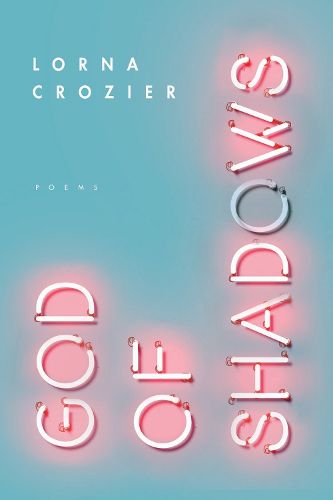Readings Newsletter
Become a Readings Member to make your shopping experience even easier.
Sign in or sign up for free!
You’re not far away from qualifying for FREE standard shipping within Australia
You’ve qualified for FREE standard shipping within Australia
The cart is loading…






The celebrated poet hailed by Ursula K. Le Guin as a storyteller, truth-teller, and visionary gives us a mesmerizing new collection of poems that are funny, wise, moving, and surprising.
How many gods can dance on the head of Lorna Crozier’s pen?
The poet Lorna Crozier has, for some time, been offering her readers glimpses into the strange corners of her personal cosmologies. Now the Governor General’s Literary Award-winning author of Inventing the Hawk returns with God of Shadows, a wryly wise book that offers a polytheistic gallery of the gods humanity never knew existed and didn’t know it needed. To read these poems is to be ready to offer your own prayers to the god of shadows, the god of quirks, and the god of vacant houses. Sing new votive hymns to the gods of horses, birds, cats, rats, and insects. And give thanks at the altars of the gods of doubt, guilt, and forgetting.
What profound question have these deities come to ask? Perhaps it is simply this- How can poems be at once so lovely and so lively and also so much fun?
$9.00 standard shipping within Australia
FREE standard shipping within Australia for orders over $100.00
Express & International shipping calculated at checkout
The celebrated poet hailed by Ursula K. Le Guin as a storyteller, truth-teller, and visionary gives us a mesmerizing new collection of poems that are funny, wise, moving, and surprising.
How many gods can dance on the head of Lorna Crozier’s pen?
The poet Lorna Crozier has, for some time, been offering her readers glimpses into the strange corners of her personal cosmologies. Now the Governor General’s Literary Award-winning author of Inventing the Hawk returns with God of Shadows, a wryly wise book that offers a polytheistic gallery of the gods humanity never knew existed and didn’t know it needed. To read these poems is to be ready to offer your own prayers to the god of shadows, the god of quirks, and the god of vacant houses. Sing new votive hymns to the gods of horses, birds, cats, rats, and insects. And give thanks at the altars of the gods of doubt, guilt, and forgetting.
What profound question have these deities come to ask? Perhaps it is simply this- How can poems be at once so lovely and so lively and also so much fun?